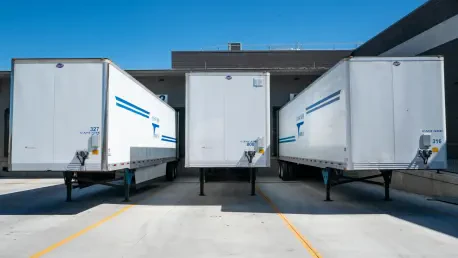In a world where efficient logistics are crucial for the movement of medical supplies, navigating the intricacies of the healthcare supply chain takes on unprecedented importance. With annual global medical supply expenses exceeding $146.9 billion, the emphasis on creating responsive and reliable logistics frameworks has never been higher. The healthcare industry’s success heavily depends on these frameworks to ensure timely and secure delivery of critical supplies such as diagnostic equipment, pharmaceuticals, and personal protective equipment. Understanding future trends and potential challenges is vital for healthcare providers and logistics professionals alike.
Transforming Healthcare Logistics: Emerging Trends and Developments
Healthcare logistics have drastically transformed over the years as global health demands and regulatory expectations continue to rise. The evolution from traditional, simple transportation methodologies to complex systems underscores the necessity for precision and compliance. This transformation has been marked by the implementation of stringent regulations designed to protect patient safety and ensure that medical supplies reach their destinations without delay or damage. Understanding this progression is essential for those wishing to comprehend the pressures and dynamics shaping the healthcare logistics landscape today.
The Role of Technology in Temperature-Sensitive Shipments
A critical component of healthcare logistics is maintaining the required temperature for pharmaceutical shipments. Cold chain management technology is essential for preserving drug efficacy during transportation. Any failure to adhere to Controlled Room Temperature (CRT) guidelines jeopardizes shipment integrity, leading to potential patient safety risks. The challenge remains in achieving universal compliance with temperature standards while adopting cutting-edge technologies to monitor and respond to fluctuations effectively.
Enhancing Visibility in the Supply Chain
End-to-end visibility of medical shipments has become a crucial element, aided by advancements in GPS and real-time monitoring tools. These technologies not only provide transparency but also inherently enhance security in the healthcare supply chain. The complexity of these systems differentiates healthcare logistics from standard industries. The increased reliance on transparent logistics systems marks the importance of maintaining visibility and security, ensuring efficient and safe delivery necessary for the health sector.
Navigating Regional Market Challenges
The global healthcare logistics landscape continues to be influenced by regional disparities and disruptions. Emerging solutions in blockchain and the Internet of Things (IoT) show promise for improving reliability and security across varying markets. Experts suggest that adapting security measures and utilizing real-time decision-making processes can address unique regional challenges. Nonetheless, misconceptions about technology integration and regulatory alignment often create barriers that must be overcome through informed and strategic approaches.
Projecting Restorative Growth in Healthcare Logistics
Future healthcare logistics trends signify a shift toward embracing artificial intelligence and machine learning to optimize routes and predict demand more accurately. Regulatory changes and economic pressures indicate a potential reshaping of current operational strategies. Predictive models anticipate the continuation of automated systems integration, suggesting a future where smarter logistics solutions cater to increasing complexities and stringent compliance requirements, driving industry leaders to seek innovative collaborations.
Concluding with Strategic Insights
Healthcare logistics have consistently proven to be an essential backbone for the industry, offering key insights into the significance of compliance and technology in achieving robust frameworks. Key recommendations for businesses point toward investment in adaptable technologies and fostering logistics partnerships to improve supply chain visibility and efficiency. Practical applications of these strategies encourage healthcare professionals to apply lessons learned, building stronger networks focused on patient safety and supply chain continuity.
Reflecting on these insights, the need for reliable logistics in healthcare has been critical in shaping patient care and organizational effectiveness. As healthcare demands have intensified, the importance of strategic innovations and strong alliances is heralded as the foundation for supporting broad medical needs in dynamic healthcare environments.









